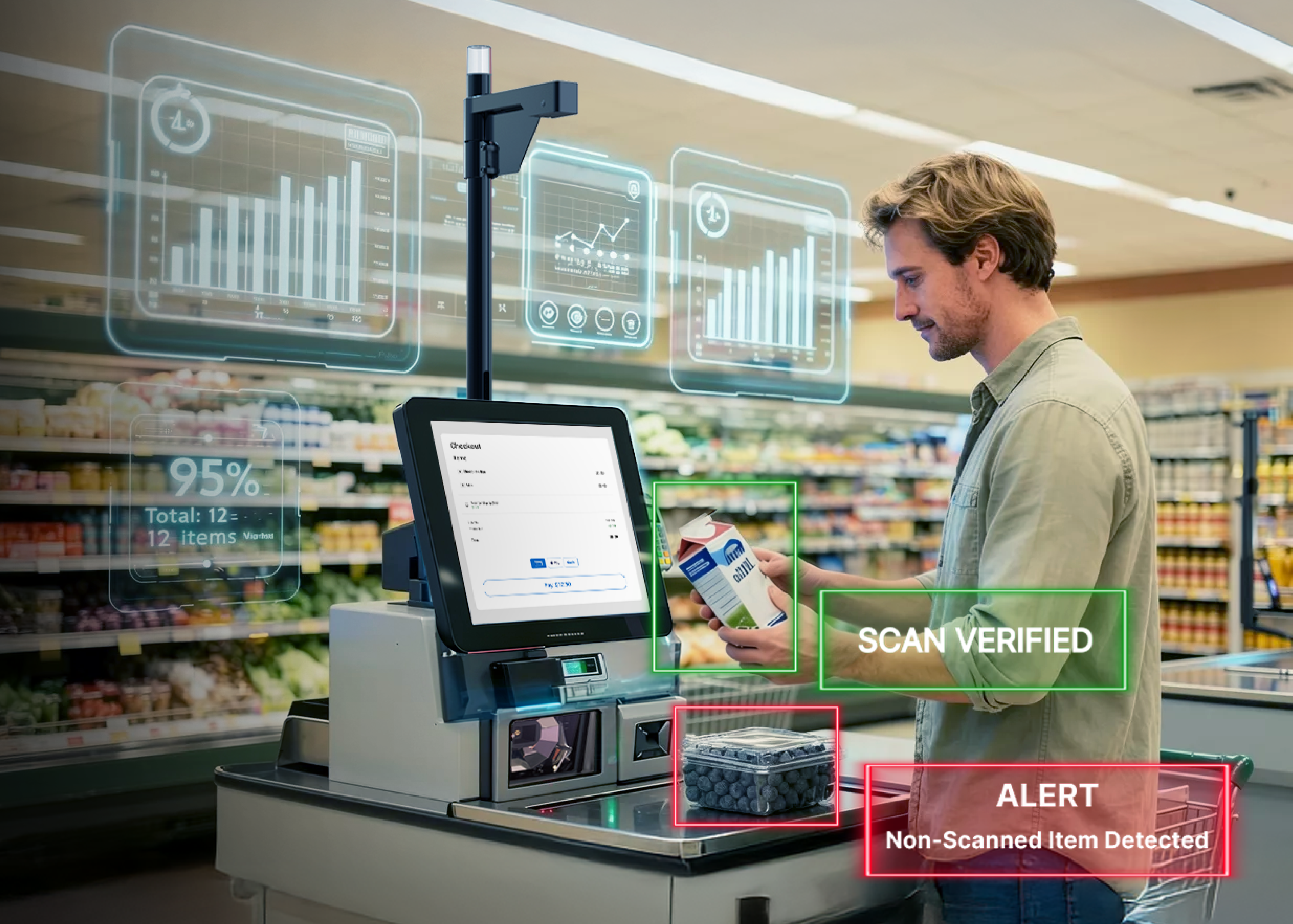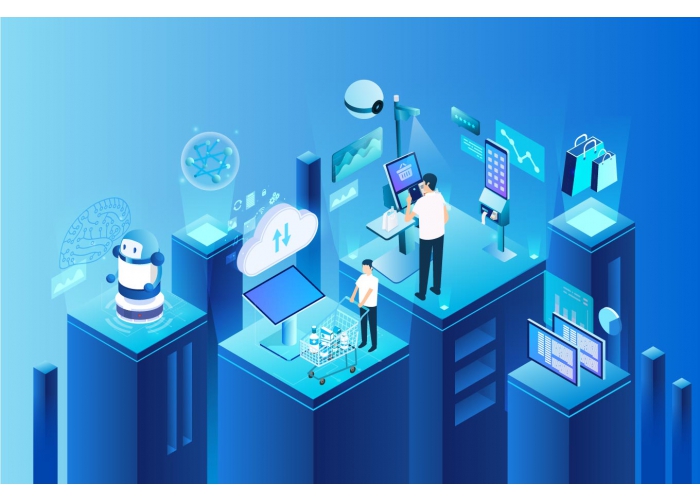In recent years, artificial intelligence (AI) has evolved from a buzzworthy technology into a transformative tool, delivering tangible results across industries. While initial reactions mixed skepticism with hype, AI has demonstrated its revolutionary potential, especially in the hospitality and retail industries. From sophisticated AI cameras that optimize operations to machine learning algorithms that drive personalized recommendations, AI has gradually become an integral part of modern business. Beyond these applications, it also addresses persistent business challenges, aiming to create value for both customers and stakeholders.
The Revolutionary AI Solutions for Retail Loss Prevention
As discussed in our previous blog, self-checkout kiosks have gained popularity for their ability to enhance operational efficiency, reduce labor costs, and provide environmental benefits. However, according to CNN news reports, many retailers are rolling back self-checkout systems due to the inevitable "shrink". Commonly adopted self-service technologies, such as weighing scales, cannot fully address these issues either. Challenges such as mis-scans, intentional fraud (including fake scans and theft), items left in baskets, and the frequent need for staff assistance have prompted retailers to reevaluate their self-checkout strategies.
In this case, the newly developed AI-powered cameras offer a game-changing solution. By integrating advanced visual recognition capabilities, these cameras automate many monitoring functions traditionally performed by humans and address long-standing challenges.
• Detect and Prevent Errors: AI systems use computer vision algorithms to continuously monitor checkout stations, identifying missed scans, unpaid items, and items left in baskets in real time. When discrepancies are detected, the system automatically triggers corrective actions at the checkout point, such as light or sound alerts. It also sends instant notifications to nearby staff and managers for immediate response.
• Combat Fraud: Advanced algorithms leverage machine learning capabilities to recognize and analyze complex patterns of fraudulent behavior. The system alerts staff when suspicious activities are detected, allowing for swift and discreet intervention while maintaining a positive shopping environment.
• Provide Timely Assistance: The system monitors checkout progress, customer behavior, and transaction patterns to identify when assistance is needed. This helps reduce delays and ensures a smooth, well-supported checkout experience, enhancing customer satisfaction.
How AI is Reshaping the Future of Quick Service Restaurants
In the fast-paced world of Quick Service Restaurants (QSRs), businesses face a complex landscape of challenges. Customer expectations for both speed and seamless service continue to rise, while labor shortages and high turnover rates create operational difficulties. Drive-thru service, essential to the industry, presents additional challenges. Traditional loop timers, which have served as the backbone of drive-thru management for years, have notable limitations: they can only record minimal data and are unable to interpret the information they collect.
The rise of AI-driven approaches in QSRs has transformed restaurant management in various ways. It has elevated cameras and drive-thru timers from mere security tools into revolutionary assets. These AI-powered devices now provide powerful solutions for enhancing the in-store dining experience, optimizing drive-thru operations, and boosting profitability through data analytics and tracking capabilities.
• Enhancing In-Store Efficiency: Compared to traditional cameras, AI-integrated cameras monitor service times with unparalleled accuracy at every stage of the customer experience. They capture precise metrics, ranging from food preparation times and staff movements to cleanliness and walkout detection. By compiling and analyzing this data, managers can identify operational bottlenecks, streamline processes, allocate staff strategically, and maintain consistent service quality.
• Drive-Thru Optimization: Excellence in drive-thru service relies on key touchpoints: pre-menu queuing, ordering, and food production. AI-integrated timers capture a holistic view of drive-thru operations like queue lengths, service times, and drive-off vehicles. These systems not only collect comprehensive data but also analyze it to provide actionable insights, such as customer behavior patterns, service speed trends, and peak time analysis, empowering managers to make data-driven decisions.
• Tailored Strategy: Not every QSR is identical, even within the same brand. Despite using the same hardware and equipment, locations can vary significantly in layout and environment. This variability makes it challenging to implement a one-size-fits-all strategy across branches. AI cameras address this by capturing and analyzing store-specific data, enabling decision-makers to develop customized operational plans for individual locations while maintaining brand-wide strategic alignment.
These AI innovations address critical pain points while enhancing the reliability and efficiency of existing technologies, making them a practical choice for forward-thinking managers in retail and hospitality. As AI technology and machine learning algorithms keep evolving, their applications continue to expand, unlocking new possibilities across various operational aspects. AI has moved beyond being just another technological buzzword. It consistently demonstrates tangible benefits and presents promising potential for reaching new frontiers.
Ready to harness the power of AI for your business operations? Connect with our experts to explore tailored solutions designed to address your unique challenges and optimization needs.


